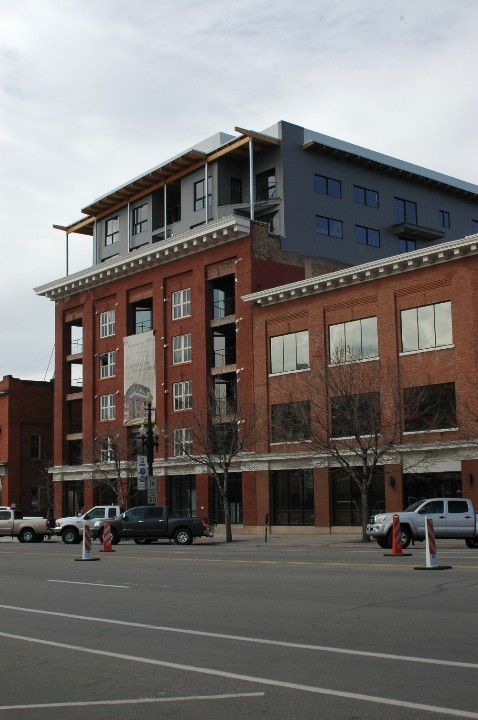 Posted Jan 18, 2008, 10:24 PM
Posted Jan 18, 2008, 10:24 PM
|
 |
Registered User
|
|
Join Date: Aug 2006
Location: Downtown Los Angeles
Posts: 19,388
|
|
Downtown - Westgate Lofts - Near Completion

Equitygreen
A converted warehouse that was built in 1909, it once housed commercial tenants General Electric and Sears Roebuck. There will be 54 residential and 3 commercial units. Each tenant will enjoy there own private balcony and there will be a rooftop garden for all to share. Sizes range from 650 sq/ft studios and one-bedrooms to 2,500 sq/ft penthouses. Prices start at about $150,000 and range close to $700,000.

Equitygreen
But the cool thing that sets this development apart is the way the structure's temperature will be regulated. A geothermal heat pump was installed, which compared to using natural gas and electricity, will save tenants between 25% to 75% on their utility bills. Basically, water beneath the earth's surface remains at a constant temperature. In the winter, that water is brought to the surface. A heat pump extracts the warmth from the liquid to heat the units...the remaining water is sent back underground. In the summer, the process is reversed. Although simple in its design, the ground-source heat pump system should be extremely efficient, with low operating costs, as compared to installing new air conditioning system.
Geothermal heat pump

A geothermal heat pump system is a heating and/or an air conditioning system that uses the Earth's ability to store heat in the ground and water thermal masses. This system will take advantage of a land mass as a heat exchanger to either heat or cool a building structure. These systems operate on a very simple premise; the ground a few feet below surface stays around annual average temperature throughout the year, typically somewhere in range of 50-85 °F (10-30 °C) depending upon location's annual climate. A water-source heat pump uses that available heat in the winter and puts heat back into the ground in the summer. A geothermal system differs from a conventional furnace or boiler by its ability to transfer heat versus the standard method of producing the heat. As energy costs continue to rise and pollution concerns continue to be a hot topic, geothermal systems may hold a solution to both of these concerns. A particular advantage is that they can use electricity produced from renewable sources, like solar and wind power, to heat spaces and water much more efficiently than an electric heater. This allows buildings to be heated with renewable energy without transporting and burning biomass on site, producing biogas for use in gas furnaces or relying solely upon solar heating. Geothermal heat pump systems are straightforward and do not require high tech components.
Westgate Lofts
 Kevin Delaney
Kevin Delaney

|